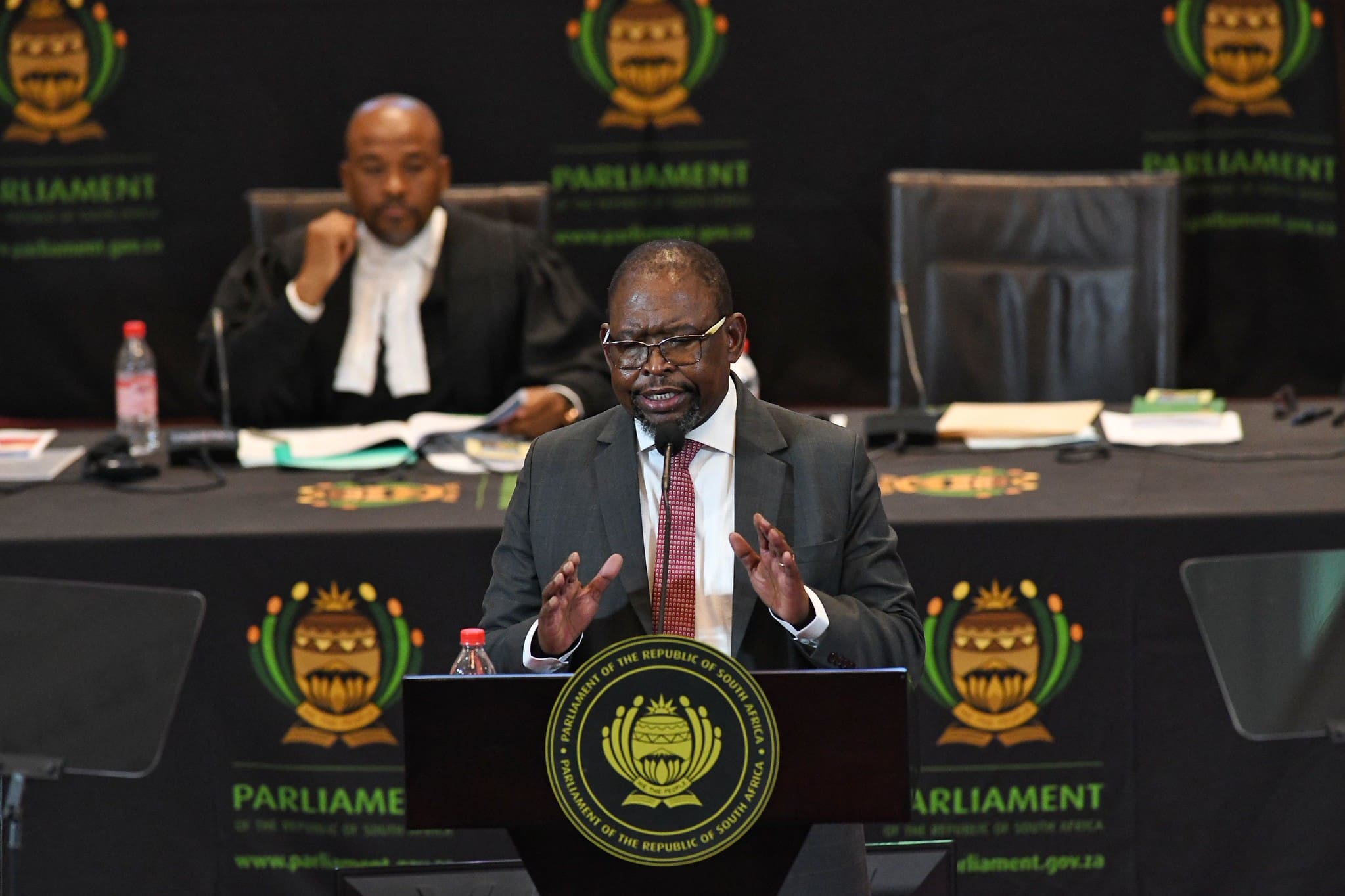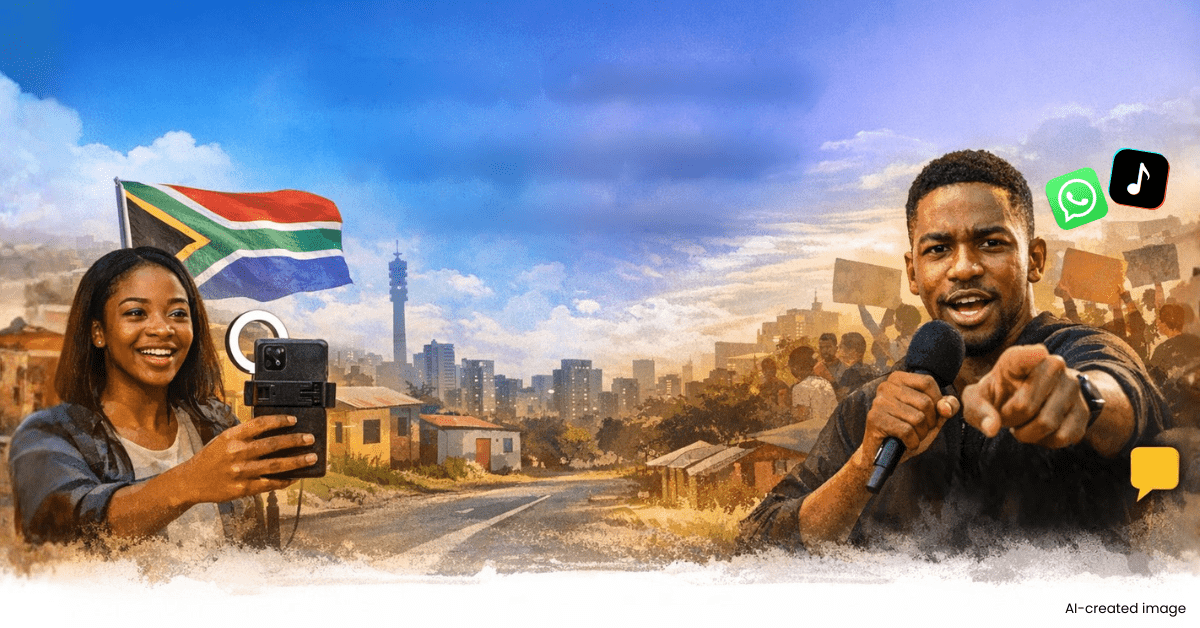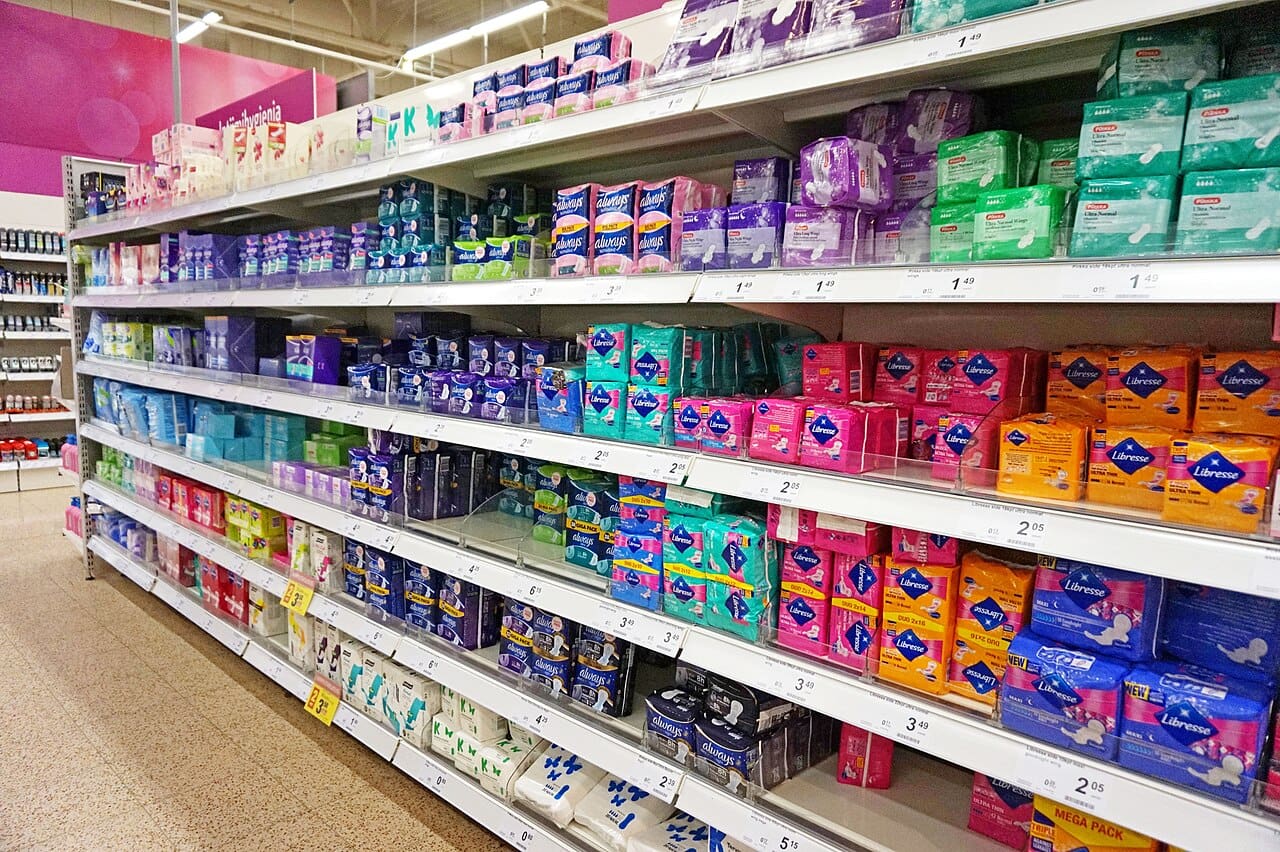As South Africa gears up for its national elections on 29 May 2024, a crucial demographic remains at the forefront of discussions: the country’s youth.
In what is looking to be the most contested elections since South Africa became a democracy in 1994, youth voter turnout at the ballot box holds considerable sway.
“Around 40% of registered voters are below the age of 35, so that’s between 13 and 14 million people,” says Tessa Dooms, a sociologist, political analyst and director at the Rivonia Circle, a knowledge hub for policy and political alternatives.
To put the potential power of youth voters into perspective, Dooms notes that in the 2019 national elections, “the largest party [the ANC] received 10 million votes in order to get 57% of the vote, and that was with a total turnout of 16 million people.”
“If all 13 million who are registered show up, not only would it improve voter turnout significantly, but it certainly would make [the elections] a lot more competitive,” she says.
Often stereotyped as apathetic towards politics, the younger generation’s engagement in previous elections has been underwhelming. In 2019, the country saw its lowest voter turnout in history, with only 65.9% of voters making the effort to show up on the day. Many young people formed part of the group that stayed away from the ballot box.
However, the lead-up to this year’s elections seems to be painting a different picture. “We have 1.2 million new registered voters in this election, which is the highest number of new voters we’ve had in a few election cycles,” says Dooms. “This shows a new energy of young people willing to vote,” she adds.
The youth demographic includes people between the ages of 18 and 35, meaning the majority of these potential voters form part of the ‘born-free’ generation and are entering the elections with a different perspective than their older counterparts.
“Nowadays, the younger generation is more politically active and also really involved in wanting to change the country,” says Monique Shrank, a 21-year-old from Pretoria.
“I have registered to vote, the reason being; I feel empowered as it’s my first time voting,” says Nick Lane, a BCom in International Business student at Stellenbosch University.
High unemployment rates, inadequate access to education, and persistent socioeconomic disparities continue to affect millions of young people. Despite these obstacles, the youth possess formidable voting power that could reshape the nation’s political landscape.
“My belief is that if you’re not going to vote, then you don’t have the right to speak about and complain because you haven’t contributed to who’s in power,” says Lane.
The possibility of a coalition government and the potential loss of majority for the ANC has also grabbed the attention of young voters. “Young people are more likely to come out in an election that has had this much traction, that isn’t as seemingly predictable as elections before,” says Dooms. However, poor voter education will always be a hurdle, adds Dooms, who notes that political parties will downplay the possibility of a successful coalition for their benefit.
“You’ll hear most parties saying you should avoid coalitions, referencing the worst case scenarios of coalitions in the country, like the city of Joburg, Otswane or Nelson Mandela Bay, when in fact there are 66 municipalities in South Africa who are under coalition,” says Dooms.
“It’s actually very rare to find a democracy where there aren’t coalitions, especially in Parliament. So I do think we must stop demonising coalitions, but we can’t leave that up to the politicians because it’s not in their interest,” adds Dooms.
“I feel like a lot of younger people who are voting will be voting for not necessarily the political party they want to see in power, but for a party that has the potential to do more for the country,” says 20-year-old Edward Mvuyo from Johannesburg. A better understanding of our democratic system will encourage young people to vote, says Dooms.
“Elections are not a winner-takes-all system,” says Dooms. In the 2019 elections, 14 parties won a seat in Parliament, she adds. “ That means 14 parties have the ability to influence what happened in South Africa in the last five years, and I think if young people understand that more, they are more inclined to give parties a chance, even if they don’t think that party would win outright.”
Voter education relies not just on political parties; civil society and the media also have the ability to “showcase the wide variety of options engaging young people to appraise them of what their options are,” says Dooms.
There are different means to activate youth voters, says Dooms, who notes the role social media has played in the build-up to this election. “I can think of the So We Vote Instagram account and the Let’s Vote account. All of those are things that are really encouraging to see,” she says.
Civil society needs to acknowledge the role they play in empowering young voters. “We need to encourage people to vote regardless of who they vote for and create space and opportunities for voters to really think through their options,” says Dooms.
Caleb, a 20-year-old Business Management student at TUKs University, has decided to abstain from voting because he believes his vote will not carry the weight it needs to change the country. “I feel like my vote won’t make a difference, because there’s so many other people,” says Caleb.
“Once young people start realising that there are other people like them, who are thinking like them, it makes voting into a group assignment,” says Dooms. “Voters need to see that there are other people like them and know that they’re not voting in isolation.”
“In terms of one vote making a difference, not necessarily, but if we all were to vote then I think we’d be able to make a difference,” Shrank.
Historically, young people in South Africa have been catalysts for change, from the anti-apartheid movements to more recent protests for #FeesMustFall. If we show up at the polls, the 2024 elections present an opportunity for the youth to once again assert their influence and demand accountability from political leaders.
Emma is a freshly graduated Journalist from Stellenbosch University, who also holds an Honours in history. She joined the explain team, eager to provide thorough and truthful information and connect with her generation.




